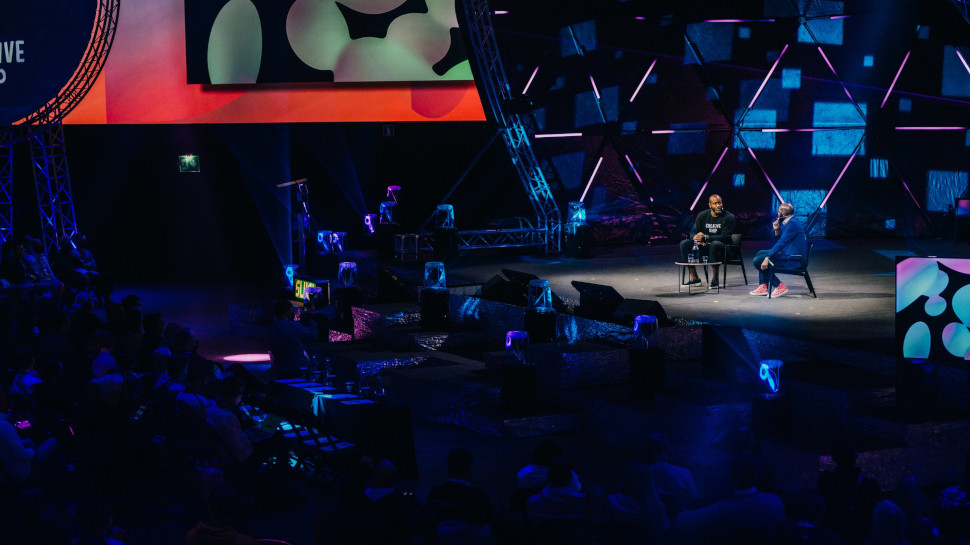Meta head of experimentation says failure is his number one priority
Ime Archibong, Head of New Product Experimentation at Meta (née Facebook), says designing truly innovative products in the tech sector is all about failing, but doing so quickly.
Speaking at Slush 2021 in Helsinki, Archibong set out his philosophy for nurturing startups and small product teams in-house at Meta, which has been his job for the last two and a half years.
“For most startups, the first idea you come up with isn’t likely to be the one that grows. The average experience is one of a lot of pivots, a lot of tries and a lot of failures,” he said, in conversation with CNN’s Larry Madowo.
“At Meta, we’ve tried to create a space where people can fail, fast. The iterative approach to experimentation begets innovation; you have to be comfortable just putting something out there. And it’s not about how often you’re right, but rather when you’re right, how right are you?”

The gardener of Meta
Later in the chat, Archibong compared his role at Meta to that of a gardener, who “creates the fertile ground for entrepreneurs to build their ideas and plant their seeds” at the company.
“A key part of my role is to be a great listener. Then it’s about asking how I can empower these entrepreneurial teams, get out of their way, and give them the psychological safety to fail multiple times within a company that has a high bar for success,” he said.
In the coming years, Meta will inevitably focus on what the metaverse will look like and the VR and AR hardware needed to bring it to fruition. But Archibong says the company’s focus will be far from narrow, especially when it comes to geography.
Asked why he was in attendance at Slush, so far from Silicon Valley, Archibong explained he strongly believes the next era of innovation will come not from the US, but rather from “non-traditional” regions that have been “overlooked” in the past.
“I’m very bullish on the African continent, Latin America and Asia,” he said. “The barriers to entry are getting exponentially lower and cheaper; anyone with a design mindset can be successful - you don’t even need programming skills these days.”
“In that environment, there’s going to be new, innovative ideas happening in corners of the world you can’t see from Silicon Valley.”
- Starting a venture of your own? Check out our lists of the best collaboration tools, best project management software and best productivity software
from TechRadar - All the latest technology news https://ift.tt/3DlMzRI
No comments